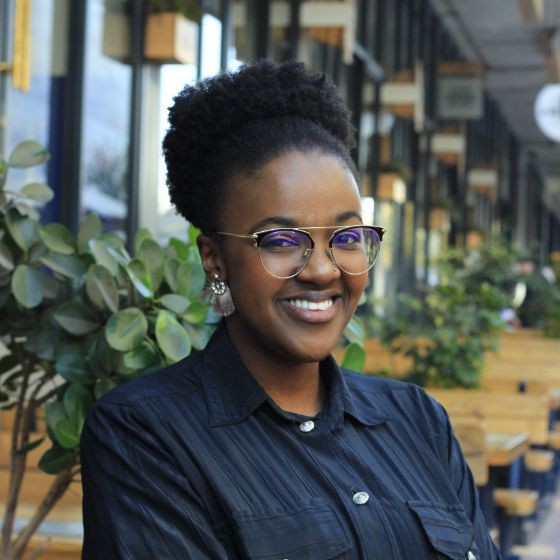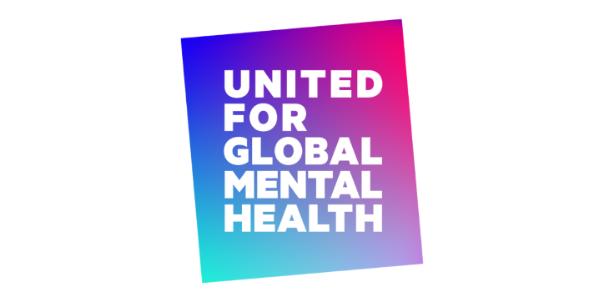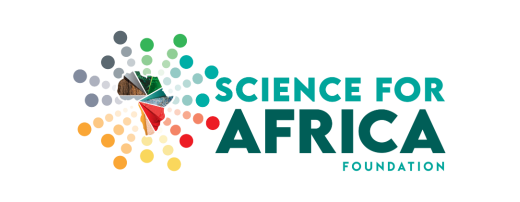
In this guest blog, Aviwe Funani, Senior Policy Officer at United for Global Mental Health reflects on one year of collaboration and advocacy for improved youth mental health.
Youth mental health is drawing more attention than ever before, with national and global efforts increasingly calling for improved policy, programmes and financing. The idea of focusing on prevention and promotion — to mitigate future mental health challenges, address social determinants of health, destigmatize conversations about mental health, and increase access to mental health care — is gaining traction. UN agencies, the World Health Organisation (WHO), UNICEF and the Partnership for Maternal, Newborn and Child Health (PMNCH), Fondation Botnar, the Global Fund, and Zurich Foundation are some of the global players leading change. The Being Initiative, launched in 2022, now joins them in driving change for youth mental health.
In partnership with Grand Challenges Canada and Fondation Botnar, United for Global Mental Health (UnitedGMH) helped developed the Being Initative to respond to increasing mental health challenges among young people. UnitedGMH leads the stakeholder engagement strategy for Being focusing on three objectives:
- Create local and global networks to drive the youth mental health agenda;
- Promote the exchange of evidence and new approaches through partnerships, and collaboration; and
- Engage young people, and people with lived experience in all efforts to strengthen the mental health ecosystem.
There were several highlights of this work in 2023. We maximized participation at global moments, giving young people and people with lived experience (PWLE) the opportunity to share knowledge and advocate for change, and engaged external agencies with stakeholders, such as the Global Fund, UNICEF, and government missions, to create greater awareness of youth mental health and its’ increased need for investment.
In 2023, United for Global Mental Health created opportunities for people who’ve lived through, and with, mental ill-health to speak to the highest levels of power. One such person was Judah Njoroge, a youth mental health advocate from Kenya, who participated in several mental health side events at the 78th United Nations General Assembly in New York. Judah spoke alongside heads of state, senior politicians, and representatives from UN agencies spotlighting the collective responsibility to ensure young people are supported to reach their right to the highest attainable level of mental health.
Judah’s story of lived experience of mental ill-health in a low- and middle-income country provided a unique perspective for an audience that would not normally get to hear his voice. His experience gives important power and nuance to the mental health challenges being faced by young people today and yielded more influence and power than any researcher or policy official could.
United for Global Mental Health has made great strides in increasing overall investment in youth mental health. Working with Being and PMNCH at the Global Forum for Adolescents, we raised awareness for youth mental health and supported the launch of the WHO’s second edition of the Global Accelerated Action for the Health of Adolescents (AA-HA! Guideline). The AA-HA! Guideline urges increased commitments for resource mobilisation, collaboration, and investment for adolescent well-being.
Another highlight of 2023, was the Women Deliver conference. Being hosted a side event on the mental health of adolescent mothers, which brought together young women with lived experience, youth advocates and funders to promote maternal mental health. Young mothers who attended the session expressed how they felt seen and were grateful to participate in conversations that remove stigma from this sensitive subject area.
One such young person was Esther Mahlangu, a panellist representing mothers2mothers, an organisation that works with HIV-positive young women and girls to improve their wellbeing through peer support and increased access to care services. Esther highlighted the importance of using a PWLE approach by listening to the first-hand experiences of mothers. Being and the Global Fund worked together to bring that session to life — a stellar example of collaboration for the mental health of young people.
Looking toward 2024, United for Global Mental Health will continue to highlight the importance of funding for youth-led mental health programmes and work in partnership with the Being Initiative to influence national and global policies. We will continue to support Being’s youth and PWLE advisory groups as well as the of launch Being’s Public Good Report to share research and findings in support of global youth advocacy. We want to see a global health and policy ecosystem where national governments are working and listening to the concerns of young people to progress youth mental health across the globe.
The young people of today are the seeds of tomorrow. If we do not care for the minds of our youth, we are neglecting the future of our global society.
The future of our stakeholder engagement with the Being initiative will bear fruit only if we successfully maintain momentum by prioritising collaboration, continuously improving advocacy efforts through learning from youth and PWLE; and emphasising the importance of increased funding for youth mental health.
“As a Being Advisor for People with Lived Experience, I have the opportunity to support this global initiative on ways to improve the realities facing youth mental health based on what has worked on the ground and what youth say they need.” — Cecilia Ashaley Fofo, Basic Needs Ghana (Member of Being’s Lived Experience Advisory Group)





